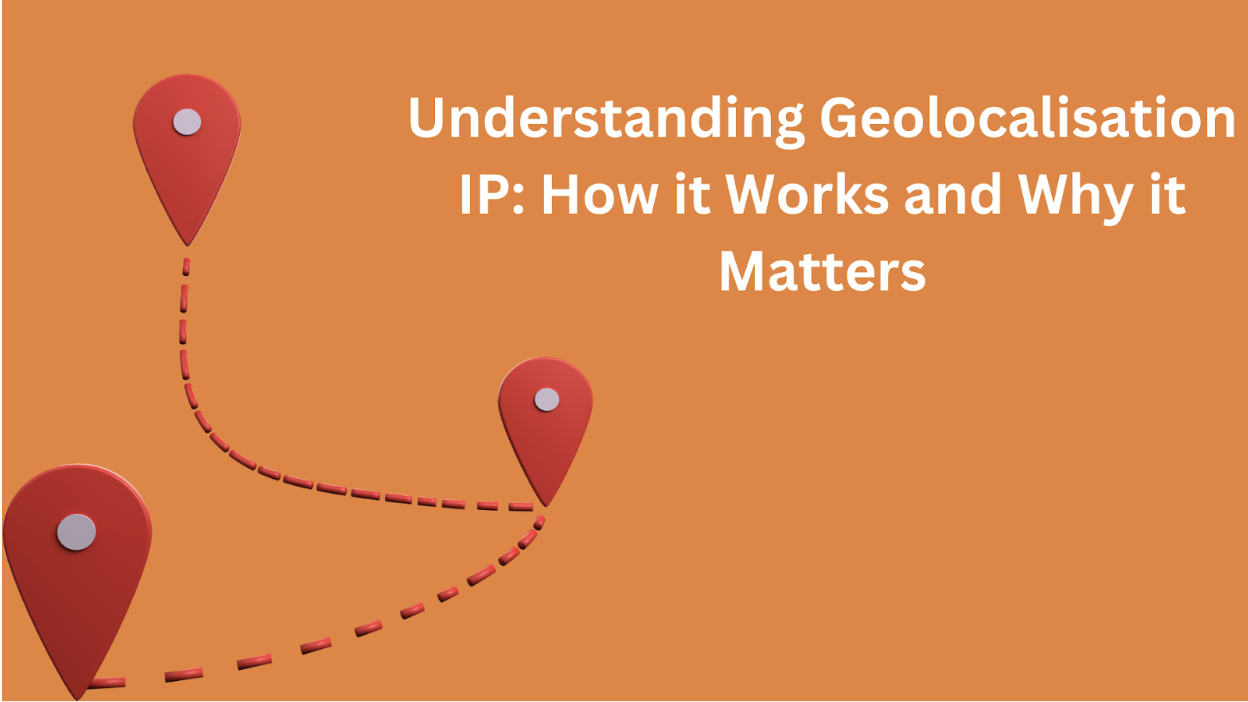In today's digital age, the ability to determine the geographical location of an IP address plays a crucial role in various aspects of online activities. From targeted advertising to fraud detection, IP geolocation has become essential for businesses and organizations worldwide. This blog post will explore IP geolocation, how it works, and why it's important.

What is Geolocalisation IP?
IP geolocation is mapping an IP address to a geographical location. This location can include the country, region, city, latitude/longitude coordinates, and even the postal code. By knowing an IP address's geolocation, businesses can gain valuable insights into the location of their users or customers.
How Does IP Geolocation Work?
IP geolocation uses a database containing information about the mapping between IP addresses and geographical locations. This database is often maintained by third-party providers who collect data from various sources, including internet service providers (ISPs) and regional internet registries (RIRs).
When a request is made to determine an IP address's geolocation, the IP geolocation service looks up the IP address in its database and returns the corresponding geographical location.
This information can be used for various purposes, such as targeting specific regions with advertising or detecting fraudulent activities.
Why is IP Geolocation Important?
IP geolocation is important for several reasons:
Businesses can use IP geolocation to target their advertising campaigns to specific regions or cities, ensuring their ads reach the right audience.
IP geolocation can help detect fraudulent activities, such as identity theft or online scams, by identifying the geographical location of suspicious IP addresses.
By knowing their users' locations, businesses can localize their content to better suit their audience's preferences and needs.
IP geolocation can be used as part of a security strategy to restrict access to certain resources based on the user's location, helping to prevent unauthorized access.

Conclusion
IP geolocation is a powerful tool that provides valuable insights into IP addresses' geographical locations. From targeted advertising to fraud detection, IP geolocation's applications are diverse and far-reaching. By understanding how IP geolocation works and why it matters, businesses can leverage this technology to enhance their online activities and improve their overall effectiveness.
FAQs
1. Is IP Geolocation Accurate?
IP geolocation accuracy can vary depending on the database and the method used to determine the location. Generally, IP geolocation can provide a fairly accurate estimate of the geographical location, often within a few kilometers.
2. Can IP Geolocation Be Used to Track Individuals?
While IP geolocation can provide information about an IP address's general location, it cannot be used to track individuals' exact locations. IP geolocation is typically accurate at the city or region level rather than pinpointing an individual's precise location.
3. Are There Privacy Concerns with IP Geolocation?
IP geolocation can raise privacy concerns, as it involves collecting and storing user location data. To address these concerns, businesses should comply with relevant privacy regulations and provide clear information about using geolocation data.
4. How Can Businesses Benefit from IP Geolocation?
Businesses can benefit from IP geolocation, including targeted advertising, fraud detection, content localization, and enhanced security. Using IP geolocation effectively, businesses can improve their marketing efforts, enhance their security posture, and provide a better user experience.